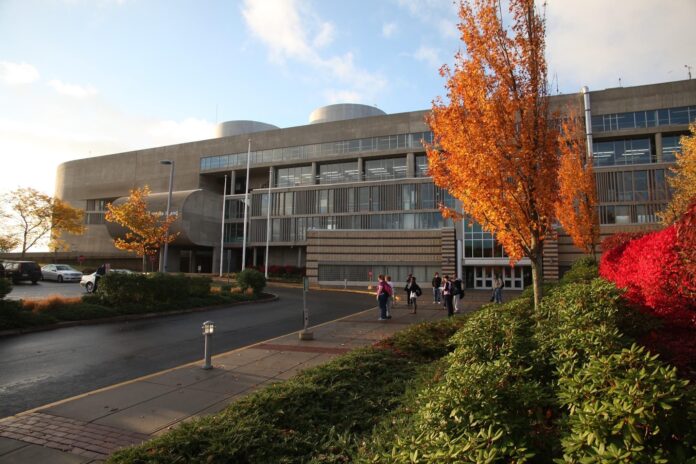
PROVIDENCE – As local colleges face uncertainty of what their enrollments will be like for the upcoming fall semester with regard to the COVID-19 pandemic and its impacts, a study released Monday by research group Eduventures believes that community colleges could see increased enrollment come September.
The report, which is the third part of Eduventure’s study on fall 2020 enrollment scenarios, says that community two-year public colleges might be “winners” in a pandemic. Community colleges, the report says, have previously seen enrollment increases when there has been economic downturn. There was an 18% jump in enrollment at community colleges between 1999 and 2002, the era of the dotcom industry downfall, and a 16% increase between 2007 and 2011 – the height of the Great Recession – the report states.
“If economic trouble spells an enrollment surge at community colleges, there is no question that COVID-19 fits the bill,” the report states. However the pandemic is “no ordinary recession,” according to the report and the college experience is “up in the air as schools wrestle with reopening scenarios, adding complexity to student decision-making.”
Richard Garrett, Eduventures’ chief research officer and author of the new report, told Providence Business News Tuesday that two groups of prospective college students will lean toward community college in the fall. One Garrett noted is adult learners who are looking for an “additional economic lift” and, if they are low-income earners, see community colleges as “affordable.”
The other is younger students, especially from lower-income families, who now may see a four-year school “as out of reach or too expensive,” Garrett said, and may try their hands at a “more-accessible institution” to seek an associate’s degree or certificate.
The report also said that more than 70% of four-year colleges are leaning “heavily toward campus reopening” for the fall. Multiple local four-year colleges, such as Bryant University, Brown University, Roger Williams University and Wheaton College recently announced that they intend on having in-person learning and campus life in the fall.
But, Garrett said students who are already enrolled in or planning to enroll in a four-year school but now face multiple uncertainties of what the college experiences may be like if campuses reopen may also consider going the community college route. The report states that there is “little appetite for another remote semester, widespread concern that a socially distanced campus may be a far cry from pre-pandemic days, and palpable parental anxiety not to overpay for anything judged a second-rate experience.”
“When will my campus reopen? What will social distancing on campus be like? Will much of it be online? My parents are worrying about overpaying,” Garrett said. “If four-year schools don’t get the balance right between safety and really offer something compelling … it might not be worth the money and many students might think ‘wait a minute, I can get those same college credits at a community college.’
“I’ll accept a more-transactional experience because the price is much lower. I’m getting the same credits and I can transfer those credits back in [to in a four-year college].”
Both the Community College of Rhode Island ($4,564) and Bristol Community College ($4,776) are the only two colleges in Rhode Island and Bristol County, Mass., where tuition for in-state students costs less than $10,000. CCRI, in the 2018-19 academic year, had 28,171 total students enrolled, as noted in the 2020 PBN Book of Lists, while Bristol Community College had 7,214 total students enrolled that same year.
CCRI announced in May that it intends to have in-person learning in the fall after shutting down all five of its campuses in March due to the pandemic, switching to online learning. But it is unclear if CCRI is anticipating higher enrollment next fall and how the college will address it. CCRI did not immediately respond Tuesday a request for comment.
James Bessette is the PBN special projects editor, and also covers the nonprofit and education sectors. You may reach him at Bessette@PBN.com. You may also follow him on Twitter at @James_Bessette.












